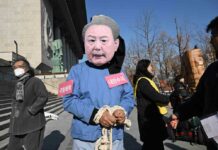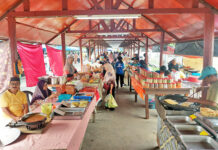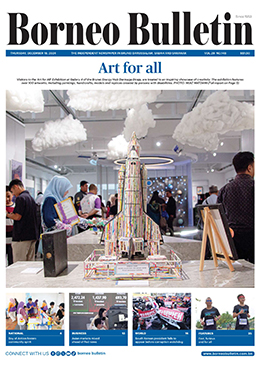AVELLANEDA (AFP) – Argentina’s factories, like many economic sectors, are floundering as consumers hit by sky-high inflation and shrinking income buy fewer goods.
Few hold out hope that things will get better any time soon.
“People still have savings” for now, Gustavo Avalos, who owns an ink factory outside Buenos Aires, told AFP. But “the outlook is bleak”.
Indeed those savings may run out soon enough, with annual inflation approaching 290 per cent and wage-earners losing about a fifth of their purchasing power.
In February, Argentina’s economic activity slumped for a fourth straight month as self-described “anarcho-capitalist” President Javier Milei’s budget-slashing plans took hold.
The figure dropped by 3.2 per cent year-on-year and by 0.2 per cent from January as Milei has sought to deregulate the economy and undo trade protections, also devaluing the peso by 50 per cent.
Eight sectors recorded an annual decline, including construction, manufacturing, wholesale and retail.
Some small and medium-sized enterprises (SMEs) “can’t pay salaries, others can’t pay rent,” said Avalos, whose factory sales fell by more than two-thirds in December and by 40 per cent in March.
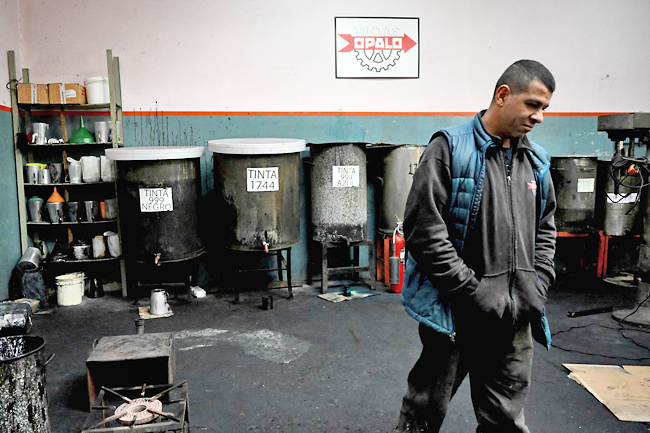
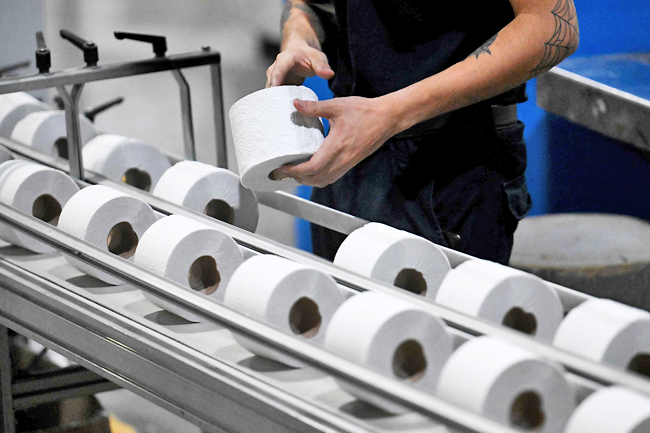
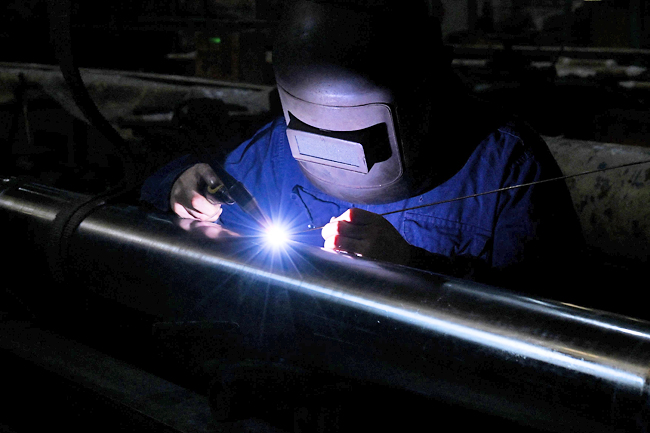
Energy prices skyrocketed 500 per cent during the same period.
“I can hold on for a year, then we’ll see,” added Avalos. “Without consumption we… die bit by bit.”
The SME chamber CAME says manufacturing output among its members dropped by nearly 12 per cent year-on-year last month and by 20 per cent for the first quarter.
By far the majority of the country’s SME’s produce exclusively for the domestic market.
“SMEs don’t see a floor (to the downward trend) in the short term,” the CAME said in a recent statement.
Big business doesn’t, either.
Steel company Acindar said in March it was stopping production for a month at four plants to compensate for a 40-per-cent drop in sales of the commodity.
In Caseros, elsewhere in Buenos Aires province, cookie factory Dulcypas is working at half capacity, having stopped two production lines.
The founder’s grandson and current owner Fernando Martinez said he has had to fire staff, reduce salaries and limit output.
“The biscuits sell very well because they are cheap,” he told AFP. “The cupcakes? More expensive, not so much.”
The International Monetary Fund has forecast Argentina’s economy will contract 2.8 per cent this year before rebounding with growth of about 5.0 per cent in 2025.
Paper mill owner Daniel Rosato, who is also president of the Industrial Union of Berazategui – a grouping of factory owners on the outskirts of the capital – said some 600 SMEs that exported manufactured goods had closed in Argentina since last year.
“The other side of that is a rise in informal work, which represents less income for the state,” he told AFP.
For Alejandro Bartolini, who owns oil pump producer Metalcrom, fair competition is the only way out.
“We don’t believe in closed markets, but we also don’t believe that indiscriminate opening can lead to success,” he said.
“Labour and capital will be lost if we do not regulate the external market.”
On Monday, Milei hailed his country’s first quarterly budget surplus since 2008 as “a feat of historic significance on a global scale”.
Libertarian economist Milei won elections last November vowing to reduce the deficit to zero. – Sonia Avalos












